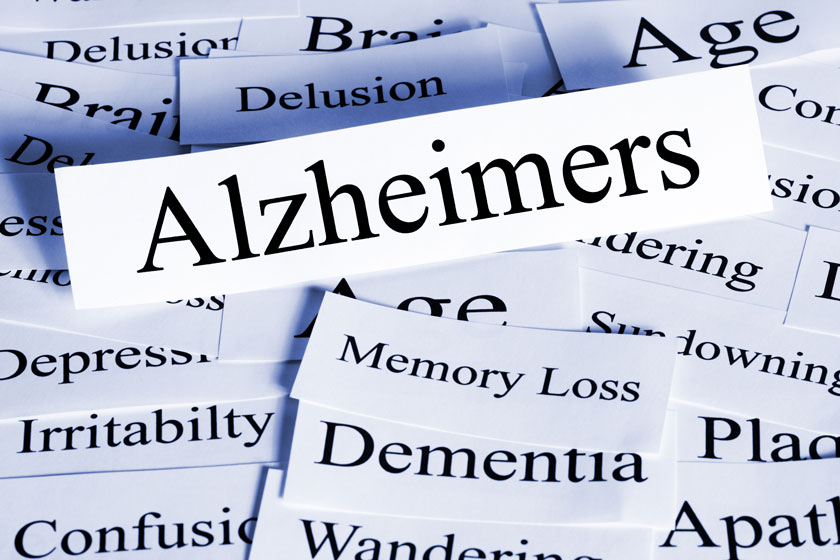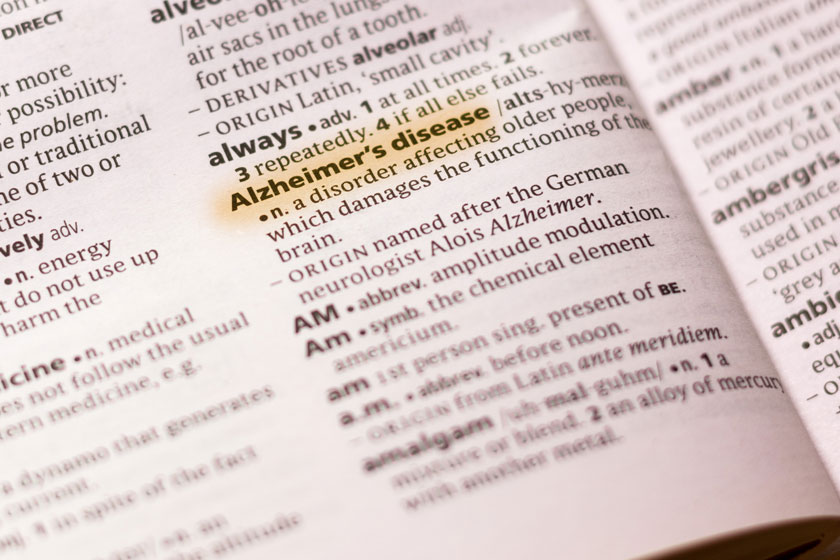
Glossary of Alzheimer’s: Common Terms You Would Want to Know
Alzheimer’s diagnosis can be overwhelming as it is. You don’t need the extra confusion from not understanding the medical terms your doctor might use. Like every other disease, Alzheimer’s and Dementia have their own associated glossary. In this article, we will simplify some medical terms and related words you are likely to hear from doctors or read on websites. Learning this glossary of Alzheimer’s is necessary for Alzheimer’s patients and caregivers.
Glossary of Alzheimer’s Disease Terms
The following list includes the most common terms Alzheimer’s patients might not know beforehand. Even patients diagnosed with other types of dementia can use this glossary. Sometimes, you might only want to look up a particular word. In this case, you’ll be happy to know that we have listed these words alphabetically to make the search easier.
A
Agitation: A sense of anxiety found in people with dementia. Agitation can cause them to be upset in certain places or when trying to remember something they can’t.
Amyloid-beta: The name of a protein. Its clumps are one of the key abnormalities in the brains of Alzheimer’s patients. These clumps form plaques that can easily disrupt cell function.
Anomia: This condition refers to the loss of ability to recognize the name of objects.
Apraxia: A condition in which you cannot carry out complex tasks or perform complex movements you have learned before.
Apathy: A lack of motivation, interest, concern, or enthusiasm; the state of not caring about your surroundings which can be a sign of mental health issues. Apathy is not the same as depression, but one of its possible symptoms.
ApoE: A gene that instructs the production of a protein called apolipoprotein E. A subtype of this protein (APOE ε4) increases the risk of developing dementia.
Assessment: Regarding dementia, this means evaluating a person’s mental status and cognitive abilities (see Cognition).
Assisted Living: A facility that provides housing, healthcare, and support services for people in the early stages of diseases like dementia.
B
Behaviour: Unpredicted or different actions that dementia or Alzheimer’s bring out in a person. Abnormal behaviours can include hallucinations, agitation, or paranoia.
C
Caregiver: Anyone who provides care to the patients, whether their family members or a professionally hired caregiver. Alzheimer’s caregivers are trained to understand and communicate with dementia patients.
Clinical Trial: Research conducted on patients or people at risk of dementia is called a clinical trial. The primary purpose of such trials is to find new ways to detect, slow down, prevent, and someday maybe even treat dementia.
Cognition: All conscious and unconscious processes involved in thinking, learning, remembering, etc. In simpler terms, it is every mental action you take to learn and understand.
Cognitive impairment: The troubles someone might have with all aspects of cognition ranging from mild to severe. Mild cognitive impairment increases the risk of dementia.
D
Dementia: An umbrella term describing a group of syndromes affecting the overall cognitive functioning that disrupt daily activities. These symptoms tend to occur more in older adults, but they are not a natural part of ageing. The most common type of dementia is known as Alzheimer’s disease. Other types include Vascular, Lewy body, Frontotemporal, Mixed dementia, or other conditions.
Disorientation: Losing one’s sense of time, location, identity or any other sort of mental confusion.
Dysphasia: A language disorder resulting from a brain disease that causes deficiency in generating speech and understanding language. Many use this term interchangeably with Aphasia.
E
Early-onset: Also known as younger-onset, this term describes the condition in which Alzheimer’s disease affects people younger than 65. This form of AD can even affect the cognition of patients in their 30s or 40s. Early diagnosis of this form, while unable to any current cure, can lead to a better quality of life.
F
Frontotemporal Dementia: A rare type of dementia in which the brain’s frontal lobe is damaged and can even affect younger people in their 30s.
G
Gait: A person’s manner of walking. As people progress with AD, gait disorders become more common since this disease can affect the brain parts responsible for movement and balance.
Gait Speed: The time one takes to walk a distance on a level surface over a specific time range. Experts associate slow gait speed with cognitive decline and an increased risk of dementia.
Genetic testing: A medical test that focuses on finding APOE ε4 or other genetic variants especially rare genes that increase the risk of or directly cause Alzheimer’s disease. These tests are not reliable enough to predict the development of Alzheimer’s in a person, and most genes (except the rare ones that directly cause the disease) are not the only factors involved in the development of AD. So, most experts do not recommend genetic testing except for some instances of early onset with a strong family history.
Geriatric psychiatrist: This psychiatrist’s area of expertise is studying, preventing and treating neurodegenerative, cognitive impairment, and mental disorders in seniors. They are also known as a psychiatrist of old age,
H
Hippocampus: The part of the brain inside the temporal lobe with responsible learning and memory.
L
Late-onset Alzheimer’s: A form of the disease in which the symptoms usually appear in a person’s mid-60s or later.
Lewy body dementia: Another common type of dementia associated with abnormal deposits called Lewy bodies. These deposits change the chemicals in the brain, which can cause a decline in cognitive function and motor skills. After Alzheimer’s disease, Lewy body is the second most common type of progressive dementia.
M
Mixed dementia: A condition in which two or more types of dementia occur simultaneously in the brain.
P
Pathology: The study of the causes and effects of a disease that provides patients with diagnostic information.
R
Risk factor: A characteristic or condition that increases the chance of developing dementia.
S
Support group: A group of people going through dementia that face the same symptoms and issues as you. This group can help you by sharing their troubles and experiences.
T
Tau: A group of proteins found in brain cells that are vital for the brain’s healthy functioning. If these proteins change abnormally under some conditions, they will accumulate and form tangles associated with Alzheimer’s disease.
Trigger: Something that might cause Alzheimer’s disease.
V
Vascular dementia: This type of dementia is often the result of a stroke or a series of mini-strokes, leading to the death of brain tissues. The risk of developing this disease significantly increases if the strokes affect the left hemisphere of the brain or the hippocampus.
W
Wandering: Choosing the wrong directions or getting lost due to disorientation, a relatively worrisome symptom of Alzheimer’s disease.
Final Words
We hope this list will benefit you in the process of diagnosis and treatment. You might not know this, but the more you know about Alzheimer’s, the better you can handle it. Hence, it is essential to get to know this disease better. This way, all patients can have an easier life.


Brilliant! So helpful and informative. Thanks.
Delusion: A false idea that someone firmly believes and won’t give up even when someone shows them proof that it’s not true.
Also, add this important term to your glossary.